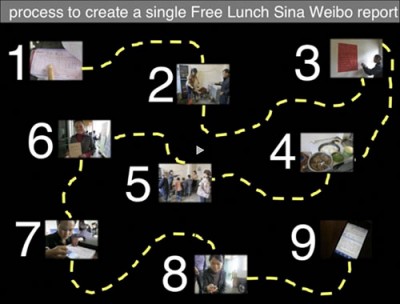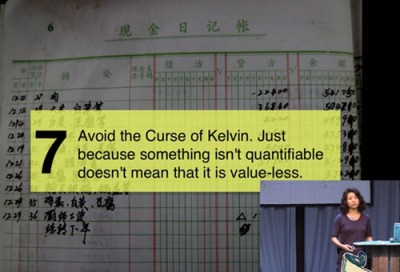The Free Lunch case for inefficient, redundant design
In her talk for The Conference 2012, Designing for Trust: How China’s Free Lunch avoided The Curse of Kelvin (embedded above), Tricia Wang makes the case that the inefficient data entry and publishing sequence pictured below is the culturally appropriate and only effective solution available.
The case study she gives is of journalist Deng Fei’s Free Lunch project, which takes micro-donations to sponsor free lunches at poor, rural schools in China.

The end of point of this process is a transparent budget report from each school about how the money has been used. The process takes nine steps because rural teachers in poor regions of China do not have access to a reliable smartphones and data connections – so it crosses through various intermediaries, many of which verify the data.
As Tricia states in her talk:
- “Redundancy makes corruption more difficult.”
- “Redundancy valorizes a culture of data keeping & monitoring.”
So in this case, despite the long game of telephone, redundancy is a feature, not a bug.
Towards the end of her talk, she uses this positive redundancy example to make a case against the prevailing cult of quantitative data and measurement.
